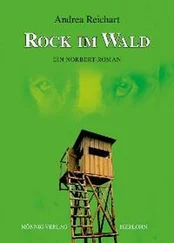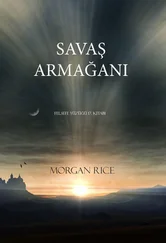We had spent two hours in Pär’s room drinking the harsh and bitter liquor he claimed was Scotch whiskey. I was trying, unsuccessfully, to blot out the recurring images of Casterman’s blood splattering away from his face and neck and across my helmet, his eyes so calm and peaceful as if leaving his life behind was a great relief. Pär was trying to help us both forget.
I stopped, put a hand against the metal corridor wall to steady myself, and glanced down at the dwarf.
“Never again,” I said to him.
Pär just laughed.
“How much farther?” I asked.
“Not much,” Pär replied.
“Stop grinning.”
Pär’s smile widened, and he turned away and started off again along the corridor. I followed.
WEdropped one more level, and everything seemed to change: the air was muggy and stagnant, and stank of overcooked ersatz meat; the corridor walls were streaked with soot and paint; a thumping bass beat seemed to come from all directions, or no direction. Farther on, a wide doorway on the left opened into a bistro where a trio of mad-rock musicians played to a dozen tables of diners and drinkers. The atonal squeals hurt my ears as we hurried past.
We were no longer alone in the corridor; we passed people who appeared to be even drunker than we were, as well as a few who looked as if they hadn’t touched alcohol in years—men and women with tight lips and frowns and furrowed brows, in stark and simple clothing.
Finally Pär led the way down a short side passage and activated a door panel. Out from the doorway rolled a quiet cloud of voices and music and lights. Pär waved me inside, then followed and closed the door behind us.
I stood just inside a large room with half a dozen chairs and settees. Light came from two hovering globes that drifted in spiral patterns about the room just beneath the ceiling. The voices stopped with our entrance, but a quiet ether jazz played in the background.
There were five or six men and at least as many women in the room, but I could not refrain from staring at one woman in the corner, seemingly shy, and in appearance amazingly like Father Veronica, if Father Veronica were to wear a blouse and trousers instead of cassock and collar.
The dwarf grinned. “Remind you of someone?”
“No,” I answered, too sharply and too quickly.
Pär’s grin widened; then he clapped his hands. “Drinks everyone!”
I could do nothing except stare at the woman in the corner staring back at me.
* * *
ANhour later I walked side by side along a dark corridor with the woman, whose name was Moira. So much about her reminded me of Father Veronica, even up close: her build, the pale and almost translucent quality of the skin on her arms, the shape of her eyes, and the thin but somehow sensuous lips. Even the way the left side of her mouth turned up when she smiled. I began to wonder if she was Father Veronica’s twin.
But I noticed differences as well: the gold-flecked green of her eyes in contrast to the dark brown of Father Veronica’s; the narrow nostrils; and especially the voice. When Moira spoke, her deep, coarse voice drove all uncertainty away, and I knew she was not Father Veronica in disguise. I wanted desperately for her not to speak at all.
Suddenly the woman stopped, swung around, put her hands behind my neck and pulled my face to hers, kissing me deeply. I didn’t respond immediately, taken aback and tasting smoke and alcohol on her lips and tongue, tastes I hadn’t expected, for I had forgotten for a moment who she was. Or who she wasn’t.
But then, overcome, I did respond, and kissed her deeply in return, wrapping my arms around her and pulling her tight against me.
Then her hands were at my belt, unbuckling it and pulling at trouser buttons.
“Not here,” I said, closing my fingers around hers, stopping her movements. “We might be seen.”
The woman nodded, grinning. She worked one hand free and plunged it inside my pants, grabbing me. I have to admit I was already aroused.
“My, my,” she said, “ that’s not artificial.”
“No,” I insisted. “I can’t… not here… not…”
She released me, but then she took my hand in hers and led me farther along the corridor. “No sense of adventure,” she said, and once again I wished she just wouldn’t speak.
Another two minutes and she opened the door to a small, dimly lit cabin, closed the door behind us after we entered. She kept my hand in hers and led me to the wall bed, which was rumpled and unmade. There was a faint smell of old sweat and a hint of stale perfume; on the shelf beside the bed was a worn brown Bible.
“Now to where we left off,” she said.
“Don’t say anything more,” I told her, trying to keep the pleading out of my voice. “Just silence.”
Thinking she understood, but not understanding at all, the woman smiled and nodded, and pulled me onto the bed beside her.
Ihad spent my life on the Argonos watching men and women fall in love, or at least make the claims of love for one another; watching pursuits and resistances both real and pretended, and other related behaviors that were often ridiculous, petty, cruel, and only occasionally touching. I had long before decided that falling in love was pointless at best. But falling in love with a priest was even worse, so absurd I could hardly believe it was happening to me. More than that, having sex with a woman because she looked like the priest I had fallen in love with was simply pathetic.
When I saw Father Veronica the next day, my skin flushed; I could feel the heat rising up along my neck, and I wanted to walk away. We were in a small chapel off to one side of the cathedral. She smiled uncertainly at me.
“What is it, Bartolomeo?”
“Nothing.” My response seemed inadequate, so I added, “I think I might be ill.” Which was true in more ways than one.
She nodded, as if that were to be expected. “It was awful, watching him die like that,” she said.
“And being so completely helpless.”
“You tried, Bartolomeo. You reacted more quickly than anyone, and you did everything you could.”
“Yes and no. Maybe Nikos was right, we shouldn’t have stayed. Maybe if we hadn’t…”
“Don’t, Bartolomeo. Going that way accomplishes nothing. Nothing unusual happened while we were in there. If he hadn’t done it then, he would have done it some other time. I am certain of that.”
I knew that intellectually, but in my gut I didn’t yet believe it, and I wasn’t sure I ever would. It helped to hear it, nonetheless.
“How well did you know him?” I asked.
“I’d known him most of my adult life, worked with him in the Church. But to be truthful, in important ways I did not know him well at all.” She paused, and sighed. “I’m ashamed to admit I didn’t like him.”
“Why are you ashamed?”
She gave me a rueful smile. “It wasn’t very generous. To dislike him.”
“No one’s perfect.”
She almost laughed then. “Certainly not the priests.” She paused again, became serious. “Eric was mean-spirited and unpleasant, and although he claimed he wanted to become a priest, he would never have been approved. He knew he was disliked by most people, and that must have been difficult to live with.”
I knew what that was like, and I wondered if I was as mean-spirited and unpleasant as Casterman had been. I didn’t think so, but how could I know? I also believed that I had changed over the last year, so that even if I had been that way once, I hoped I had become less so.
“Did he ever strike you as being suicidal?” I asked.
She hesitated before replying. “As I said, in some ways I didn’t know him very well. Does it matter?”
Читать дальше












